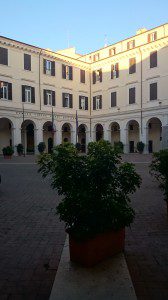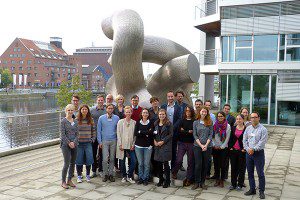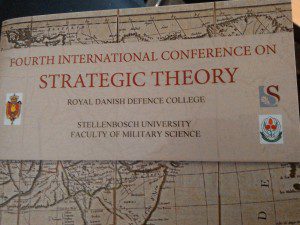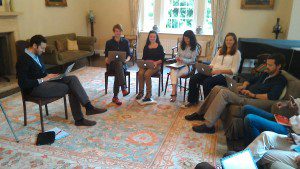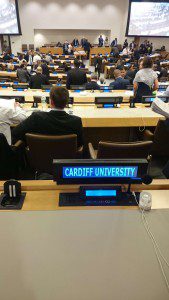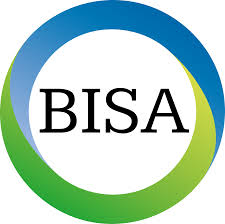 What is the status of expertise in conflict resolution? Which crisis situations lead to the assembling of what forms of expertise and what gets included and excluded? Those were the questions addressed at an authors workshop organized by the Center for the Resolution of International Conflicts (CRIC). The two day event (22.-23.10.2015) brought together a range of experts in different fields of conflict studies from across the globe. Participants included, among others, Pinar Bilgin, Anna Leander, Ole Waever, Tom Biersteker, Trine Villumsen Berling, Keith Krause, David Chandler, and Peter Vale.
What is the status of expertise in conflict resolution? Which crisis situations lead to the assembling of what forms of expertise and what gets included and excluded? Those were the questions addressed at an authors workshop organized by the Center for the Resolution of International Conflicts (CRIC). The two day event (22.-23.10.2015) brought together a range of experts in different fields of conflict studies from across the globe. Participants included, among others, Pinar Bilgin, Anna Leander, Ole Waever, Tom Biersteker, Trine Villumsen Berling, Keith Krause, David Chandler, and Peter Vale.
The discussion demonstrated how diverse the field of conflict expertise is and how varied the forms of knowledge included are. The manuscripts presented will be published as an edited volume in 2016. At the workshop I presented a reflection on Somali piracy expertise and how it has changed over the life cycle of the Somali piracy crisis on the basis of my own experiences. Here is the abstract of the paper titled ‘Experts in an Adventure with Pirates. The assembling of Somali piracy expertise’:
The 2012 animated comedy “The Pirates! In an Adventure with Scientists!” tells the story of an encounter of a pirate crew with a scientist, set to be a certain Charles Darwin. The encounter leads to an unusual alliance that results in Darwin winning the “scientist of the year” award and the Pirate Captain succeeding in the “pirate of the year” competition. This chapter tells the story of an encounter of experts with Somali pirates set roughly at the same time when the movie hit the cinemas. I recast how different constellations of Somali piracy expertise were assembled in response to the emerging problematic situations. My story is told from the inside out. I start with a range of personal reflections on how I assumed the role of a piracy expert and use a range of personal encounters with fellow experts and with the governors of counter-piracy to develop a narrative of how Somali piracy knowledge was made. The results is an incoherent narrative of how piracy knowledge has moved as the crisis unfolded and was increasingly managed. I recast a movement from experience based questions (“best practices” on how to prevent and manage a piracy attack), to questions concerning the ‘legal finish’ (how to prosecute piracy suspects?), the long-term management and prevention of piracy (what are the causes of piracy and how can we prevent the emergences of piracy?), reflexive questions (what lessons can be learned from counter-piracy?) and to the problem of exit strategies (is the piracy crisis over and can the system put in place be reversed?). Following this life-cycle of the piracy crisis allows as to understand how different problematic situations assemble distinct expertise and how the expertise that matters changes over time.
